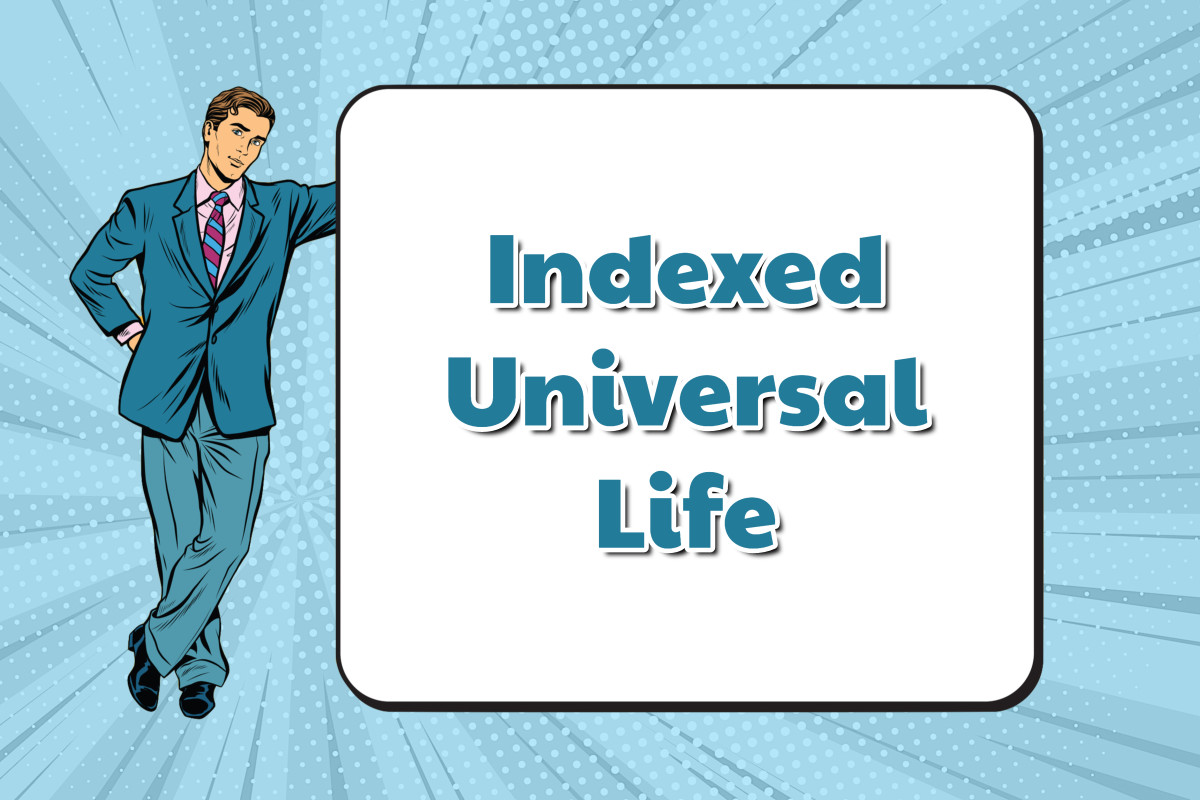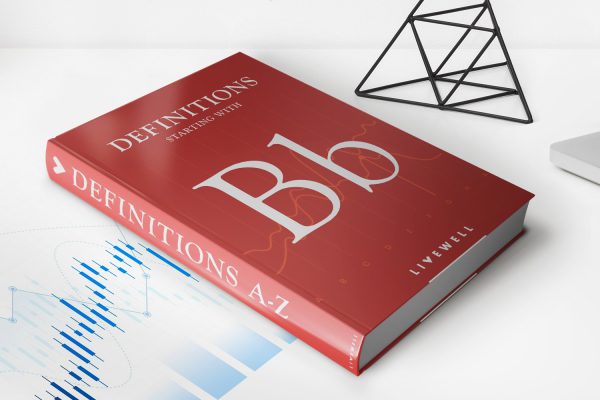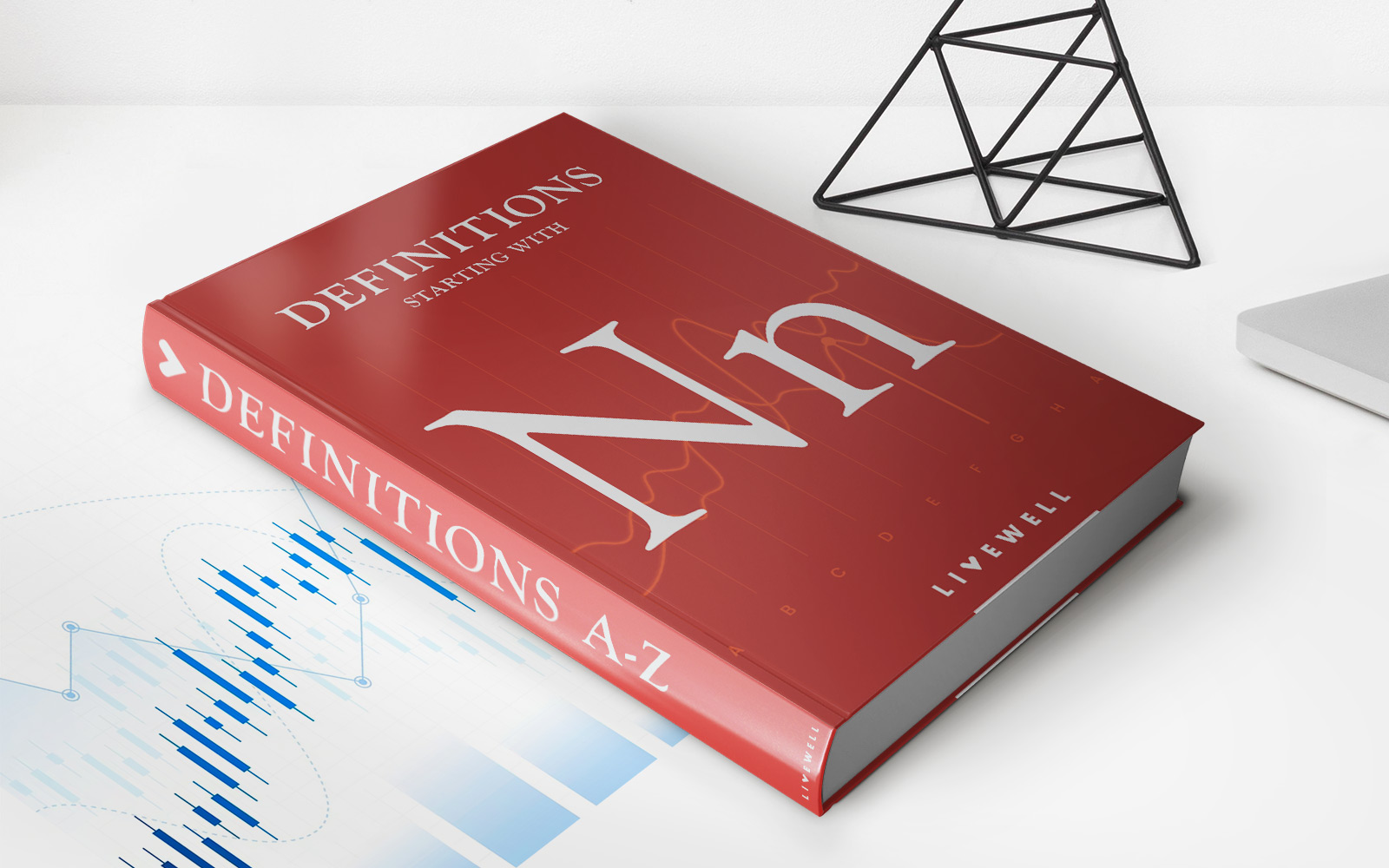

Finance
What Is IUL In Life Insurance
Published: November 23, 2023
Learn all about IUL in life insurance and how it can benefit your financial future. Understand the ins and outs of this finance option and make informed decisions.
(Many of the links in this article redirect to a specific reviewed product. Your purchase of these products through affiliate links helps to generate commission for LiveWell, at no extra cost. Learn more)
Table of Contents
Introduction
When it comes to protecting your loved ones and securing your financial future, life insurance is a vital tool. It provides a financial safety net in the event of death, ensuring that your family is taken care of during difficult times. However, navigating the world of life insurance can be overwhelming, with various options and policies available.
One such option that has gained popularity in recent years is Indexed Universal Life Insurance (IUL). It offers a unique blend of life insurance protection and investment potential. In this article, we will dive into what IUL is, how it works, and explore its benefits and drawbacks to help you determine if it is the right choice for you.
IUL is a type of permanent life insurance that provides a death benefit to your beneficiaries upon your passing. What sets IUL apart from traditional life insurance policies is that it allows policyholders to potentially grow their cash value through tied investments in stock market indexes such as the S&P 500 or Nasdaq 100.
One of the key advantages of IUL is its flexibility. It offers policyholders the ability to adjust their death benefit, premium payments, and investment allocations to align with their changing financial needs. This adaptability is particularly appealing to individuals with fluctuating income or uncertain financial situations.
Another notable feature of IUL is the potential to participate in market gains while being protected from market losses. Unlike variable universal life insurance, which directly invests in mutual funds and exposes policyholders to market volatility, IUL credits interest based on the performance of stock market indexes, providing a level of downside protection.
Moreover, the cash value growth in an IUL policy is generally tax-deferred, meaning you won’t have to pay taxes on the gains until you withdraw them. This tax advantage can be beneficial for individuals looking to maximize their long-term investment returns.
What Is IUL?
Indexed Universal Life Insurance (IUL) is a type of permanent life insurance that combines a death benefit with a cash value component linked to the performance of stock market indexes. This unique insurance product offers policyholders the opportunity to leverage potential market gains while providing downside protection against market losses.
Unlike traditional insurance policies that offer a fixed interest rate on the cash value component, IUL policies credit interest based on the performance of selected indexes, such as the S&P 500 or Nasdaq 100. The policyholder’s cash value grows based on the positive movement of those indexes, subject to certain limitations, known as caps and participation rates.
The cap is the maximum interest rate that can be applied to the cash value. For example, if the cap is set at 8% and the chosen index experiences a 12% gain, the cash value will only be credited with an 8% gain. The participation rate, on the other hand, determines the percentage of the index’s gain that is credited to the cash value. If the participation rate is set at 80% and the index gains 10%, the cash value will increase by 8%.
IUL policies also come with a guaranteed minimum interest rate, typically around 0-2%, ensuring that even if the chosen indexes perform poorly, the cash value will still receive a minimum level of growth.
One of the key benefits of IUL is that policyholders have the option to allocate their premium payments between the insurance coverage and the cash value component. This allows flexibility in adjusting the death benefit and cash value accumulation based on changing financial needs and goals.
It is important to note that IUL is not a direct investment in the stock market but rather a way to potentially participate in market gains. The insurance company pools the premiums of policyholders and invests them in various low-risk assets, including bonds and other fixed-income securities. The return generated by those investments determines the interest credited to the cash value.
Additionally, IUL policies typically provide a death benefit that is income tax-free to the beneficiaries upon the policyholder’s passing. The death benefit is usually paid out as a lump sum and can be used by the beneficiaries to cover various financial obligations, such as funeral expenses, debts, and ongoing living expenses.
How Does IUL Work?
Indexed Universal Life Insurance (IUL) works by combining elements of both traditional life insurance and investment options. Here’s a breakdown of how IUL policies operate:
1. Premium Payments: Policyholders make regular premium payments, which are used to cover the cost of insurance, administrative fees, and investment allocations. The premium amount can be flexible and adjusted within certain limits, allowing policyholders to align their payments with their financial situation.
2. Insurance Coverage: A portion of the premium payments goes towards providing the life insurance coverage, which pays out a death benefit to the beneficiaries of the policyholder upon their passing. The amount of coverage is determined by the policyholder and can be adjusted throughout the life of the policy.
3. Cash Value Accumulation: The remaining portion of the premium payments is allocated to the cash value component of the policy. This cash value grows over time based on the performance of selected stock market indexes, subject to caps and participation rates set by the insurance company.
4. Linked Indexes: IUL policies are tied to specific indexes, such as the S&P 500 or Nasdaq 100. The insurance company tracks the performance of these indexes over a specific period, typically one year, and determines the interest credited to the cash value based on the positive movement of the indexes. However, it’s important to note that policyholders do not directly invest in these indexes.
5. Crediting Methods: Insurance companies offer various crediting methods to calculate the interest credited to the policy’s cash value. These methods include annual point-to-point, monthly average, and daily averaging. Each method has its own advantages and considerations, so policyholders should carefully review and choose the crediting method that aligns with their financial goals.
6. Downside Protection: One of the key features of IUL policies is the downside protection they provide. Even if the chosen indexes perform poorly or experience negative growth, the policyholder’s cash value is not directly affected. The cash value will not decrease due to negative market returns, thanks to the guarantees offered by the insurance company.
7. Tax Benefits: The cash value growth in IUL policies is generally tax-deferred, meaning policyholders do not need to pay taxes on the accumulated gains until they withdraw the funds. This tax advantage can be beneficial for long-term saving and investment strategies.
8. Flexibility: IUL policies offer a level of flexibility to policyholders. They can adjust their premium payments, death benefit, and investment allocations over time to adapt to changing financial circumstances. However, changes to the policy may be subject to certain limitations or fees set by the insurance company.
It’s important to understand the inner workings of an IUL policy and consult with a financial advisor to determine if IUL is the right insurance and investment option for your specific needs and goals.
Benefits of IUL
Indexed Universal Life Insurance (IUL) offers several potential benefits that make it an attractive option for individuals seeking both life insurance coverage and the opportunity for cash value accumulation. Here are some key benefits of IUL:
1. Market Participation: One of the primary advantages of IUL is the potential to participate in market gains. As the cash value is linked to selected stock market indexes, policyholders have the opportunity to earn interest based on the positive performance of those indexes. This offers the possibility of higher returns compared to traditional permanent life insurance policies that offer fixed interest rates.
2. Downside Protection: Unlike direct investments in the stock market, IUL policies provide downside protection. Even if the chosen indexes perform poorly or experience negative growth, the policyholder’s cash value is not directly affected. The cash value will not decrease due to market losses, thanks to the guarantees provided by the insurance company.
3. Flexibility: IUL policies offer flexibility in premium payments, death benefit amounts, and investment allocations. Policyholders can adjust these components to align with their changing financial situations and goals. For example, if there’s a reduction in income, premium payments can be lowered without jeopardizing the coverage. Similarly, if there’s a need for higher coverage in the future, the death benefit can be increased (subject to certain limitations).
4. Tax Advantages: The cash value growth in IUL policies is generally tax-deferred. This means that policyholders do not have to pay taxes on the accumulated gains until they withdraw the funds. This tax advantage can be beneficial for long-term savings and investment strategies, allowing the cash value to grow faster over time.
5. Death Benefit: IUL policies provide a death benefit to the beneficiaries named by the policyholder. This death benefit is usually income tax-free and paid out as a lump sum. It can help cover various financial obligations, such as funeral expenses, outstanding debts, and ongoing living expenses, ensuring that loved ones are financially protected in the event of the policyholder’s passing.
6. Cash Value Access: Policyholders can access the cash value in their IUL policies through withdrawals or policy loans. This can be particularly useful during financial emergencies or for funding major expenses, such as education or retirement. However, it’s important to note that any outstanding loans or withdrawals may reduce the death benefit and cash value of the policy.
7. Coverage for Life: IUL policies provide permanent life insurance coverage that lasts for the entire life of the policyholder, as long as the premiums are paid. This ensures that loved ones are protected no matter when the policyholder passes away, providing peace of mind and financial security.
While these benefits make IUL an appealing option, it’s important to carefully consider the terms and conditions of the policy, including fees, limitations, and potential risks. Consulting with a financial advisor can help determine if IUL is the right fit for your specific financial goals and circumstances.
Drawbacks of IUL
While Indexed Universal Life Insurance (IUL) offers attractive benefits, it’s important to consider the potential drawbacks before investing in this type of policy. Here are some key drawbacks to keep in mind:
1. Complexity: IUL policies can be complex, especially for individuals who are not familiar with the intricacies of life insurance and investment products. Understanding how the cash value is linked to stock market indexes, caps, participation rates, and crediting methods may require a level of financial literacy and expertise.
2. Market Risk and Volatility: Although IUL policies provide downside protection, they are still subject to market risk and volatility. If the chosen stock market indexes perform poorly or experience negative growth, the cash value growth may be lower than expected. It’s important to have a long-term perspective and be prepared for fluctuations in the cash value based on market conditions.
3. Limitations on Cash Value Growth: IUL policies often have limitations such as caps and participation rates that restrict the full potential growth of the cash value. The cap sets a maximum interest rate that can be credited to the cash value, while the participation rate determines the percentage of the index’s gain that is actually credited. These limitations can result in lower returns compared to directly investing in the stock market.
4. Cost of Insurance: IUL policies typically have higher premiums compared to traditional life insurance policies with no investment component. A portion of the premium payments goes towards covering the cost of insurance, administrative fees, and investment expenses. It’s important to understand the cost structure and ensure that the benefits of the policy outweigh the associated costs.
5. Surrender Charges: IUL policies often come with surrender charges, especially in the early years of the policy. If policyholders decide to surrender or terminate the policy before a specified period, they may incur significant charges or penalties. It’s important to carefully consider the long-term commitment and potential surrender charges before investing in an IUL policy.
6. Potential Overemphasis on Cash Value: The investment component of IUL policies can sometimes lead to an overemphasis on cash value accumulation rather than the primary purpose of life insurance – protecting loved ones. It’s essential to ensure that the death benefit is sufficient to meet the financial needs of beneficiaries, taking into account changing circumstances and future financial obligations.
7. Limited Investment Options: IUL policies typically offer a limited range of stock market indexes to choose from for cash value growth. This restricts policyholders’ investment options compared to other investment vehicles that provide a wider range of investment choices. It’s important to evaluate the available index options and assess their historical performance and potential for growth.
Before committing to an IUL policy, it’s recommended to thoroughly review the policy terms, understand the potential limitations and risks involved, and consult with a financial advisor who can provide guidance tailored to your specific financial goals and circumstances.
Is IUL Suitable for Everyone?
While Indexed Universal Life Insurance (IUL) can be an attractive option for many individuals, it is not necessarily suitable for everyone. Here are some factors to consider when determining if IUL is the right choice for you:
1. Risk Tolerance: IUL policies come with market risk and volatility. The cash value growth is dependent on the performance of selected stock market indexes. If you have a low tolerance for market fluctuations and prefer stable, predictable returns, IUL may not be the best fit for your risk profile.
2. Investment Horizon: IUL policies are designed for long-term growth. If you have a short investment horizon or need immediate liquidity, other investment options may be more suitable. It’s important to align your investment timeline with the potential growth of the cash value in an IUL policy.
3. Financial Goals and Priorities: IUL combines life insurance coverage with potential cash value accumulation. If your primary financial goal is solely focused on protecting your loved ones and providing a death benefit, a traditional life insurance policy may be sufficient. Evaluate whether the investment component aligns with your overall financial plans and priorities.
4. Affordability: IUL policies typically have higher premiums compared to traditional life insurance policies. If the premium payments strain your budget or you are unable to commit to the required premium payments over the long term, it may be challenging to sustain an IUL policy. Ensure that the premiums are manageable within your financial means.
5. Financial Stability: IUL policies require ongoing premium payments to maintain the coverage and cash value growth. If you anticipate fluctuating income or uncertain financial stability in the future, it’s important to assess whether you can consistently meet the premium obligations to avoid potential policy lapses.
6. Financial Expertise: Understanding the complexities of IUL policies, including the mechanics of cash value growth, caps, participation rates, and crediting methods, may require a certain level of financial expertise. If you are not comfortable or experienced in managing investment products, it may be beneficial to seek guidance from a financial advisor who can provide comprehensive advice tailored to your specific situation.
7. Overall Insurance and Investment Strategy: Consider your existing insurance and investment portfolio when evaluating IUL. Determine how IUL fits into your overall financial strategy, considering factors such as diversification, risk management, and tax implications. It’s important to have a holistic approach to your financial planning to ensure that IUL aligns with your broader goals.
Ultimately, the suitability of IUL depends on your individual circumstances, preferences, and financial objectives. Assessing your risk tolerance, timeline, affordability, and need for life insurance coverage will help inform your decision. Consulting with a financial advisor can provide valuable guidance in evaluating whether IUL is the right choice for your specific needs.
How to Choose an IUL Policy
Choosing the right Indexed Universal Life Insurance (IUL) policy is crucial to ensure it aligns with your financial goals and needs. Here are some key factors to consider when selecting an IUL policy:
1. Financial Stability of the Insurance Company: Research the financial stability and reputation of the insurance company offering the IUL policy. Look for ratings from independent rating agencies, such as A.M. Best, Moody’s, or Standard & Poor’s, to assess the company’s financial strength and ability to meet its obligations over the long term.
2. Policy Features and Options: Evaluate the features and options offered by different IUL policies. Consider factors such as premium flexibility, death benefit options, surrender charges, loan provisions, and policy fees. Assess how these features align with your financial situation and goals.
3. Cash Value Growth Potential: Understand how the cash value in the IUL policy will grow based on the linked stock market indexes. Consider factors such as caps, participation rates, and crediting methods. Compare the historical performance of the indexes offered and assess their potential for growth over the long term.
4. Policy Illustrations: Request policy illustrations from insurance companies, which provide projections of the cash value and death benefit growth over time. Examine the assumptions used in the illustrations, such as interest rates and fees, and consider their potential impact on the policy’s performance. Be cautious about relying solely on illustrations, as they are not guarantees.
5. Premium Affordability: Determine if the premium payments for the IUL policy fit within your budget and financial capabilities. Consider how changes in premium payments can impact the policy’s cash value growth and death benefit. Ensure that the premium structure is sustainable over the long term to avoid policy lapses.
6. Insurance and Investment Goals: Clarify your insurance and investment goals when selecting an IUL policy. Assess whether the policy adequately covers your life insurance needs and provides the potential for cash value accumulation aligned with your investment objectives. Evaluate how the IUL policy fits into your overall financial strategy.
7. Seek Professional Advice: Consulting with a knowledgeable financial advisor or insurance specialist can provide valuable insights and guidance in choosing the right IUL policy. They can help analyze your financial situation, risk tolerance, and evaluate different policy options to ensure a comprehensive understanding of the product.
8. Read the Policy’s Terms and Conditions: Carefully review the terms and conditions of the IUL policy, including any limitations, fees, surrender charges, and potential penalties. Understand the policy’s terms regarding policy loans, withdrawals, and changes to the death benefit or premium payments.
Taking the time to research and compare different IUL policies, understanding your financial goals, and seeking professional advice will help you make an informed decision. Remember, the suitability of an IUL policy depends on your individual circumstances and preferences, so choose wisely to ensure it meets your unique needs.
Conclusion
Indexed Universal Life Insurance (IUL) can be a valuable tool for individuals seeking both life insurance coverage and the potential for cash value accumulation. It offers the opportunity to participate in market gains while providing downside protection from market losses. However, it’s essential to carefully consider the benefits, drawbacks, and suitability of IUL for your specific financial goals and circumstances.
When considering an IUL policy, evaluate factors such as your risk tolerance, investment horizon, financial stability, and affordability. Understand the policy features, cash value growth potential, and the financial strength of the insurance company offering the policy. Additionally, be aware of the complexities and potential limitations associated with IUL, as well as the need for ongoing premium payments and the long-term commitment it requires.
Consulting with a financial advisor or insurance specialist is highly recommended when navigating the world of IUL. They can provide personalized guidance, help evaluate different policy options, and ensure that your insurance and investment goals align with the chosen IUL policy.
Ultimately, IUL can be a suitable choice for individuals who are comfortable with market participation, have a long-term investment horizon, and seek the potential for tax-deferred cash value growth. It can provide flexibility, a death benefit for beneficiaries, and the opportunity to accumulate savings over time. However, it’s crucial to conduct thorough research, review policy terms, and seek professional advice to make an informed decision.
Remember, every individual’s financial situation is unique, and what works for one person may not work for another. Take the time to assess your needs, consider the pros and cons of IUL, and make a choice that aligns with your overall financial objectives and risk tolerance.
By understanding the intricacies of IUL and making an informed decision, you can leverage this insurance product to protect your loved ones and potentially grow your financial wealth over time.














